Search
 Video
Video
Better Cancer Care: Pearls From the Best Studies of 2022
Focusing on blood, breast and lung cancers, our specialists deliver exciting findings from the latest phase III trials. Document
Document
Spine Center
The UCSF Spine Center offers comprehensive management for all disorders of the spine, spinal cord and nerve roots.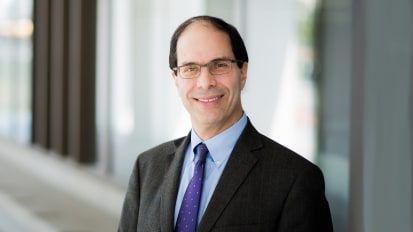 News
News
UCSF Prostate Cancer Specialist Inducted into Annual Class of “Giants of Cancer Care”
Eric Small, MD, has been announced as one of the winners of the 10th annual Giants of Cancer Care® awards. News
News
Gender Affirming Care, Perinatal Innovation Among Obstetrics and Gynecology Conference Talks
Innovations in perinatal care, gender affirming care and improving pregnancy outcomes for women with fibroids, were among the topics UCSF clinicians discussed at the American College of Obstetricians and Gynecologists (ACOG) 2024 Annual Clinical & Scientific Meeting News
News
COVID-19 During Pregnancy Associated with Preterm Birth, UCSF-Led Study Finds
Pregnant people infected with COVID-19 face an increased risk of very preterm birth (VPTB), preterm birth (PTB) or early term birth, according to a large population-based study led by researchers at UC San Francisco. News
News
AI in Cancer Care, Targeted Therapies Among Cancer Conference Talks
Leading cancer researchers from UC San Francisco presented talks about advances in targeted therapies, cancer genomics, using AI to personalize cancer treatment, improving diagnosis of hard-to-treat cancers and other cancer research topics at this year’s annual meeting of the American Association for Cancer Research (AACR) conference. News
News
Prioritizing Organ Preservation for Rectal Cancer Patients
Although rectal cancer is a life-threatening disease, it is highly curable in its early stages. Depending on the location and state of the cancer, surgery may be required. Video
Video
Colon Cancer: New Screening Options and Guidelines
With colon cancer increasingly found in younger patients as well as a leading cause of cancer-related death, Aparajita Singh, MD, MPH, director of the UCSF GI Cancer Prevention Program, offers an important update.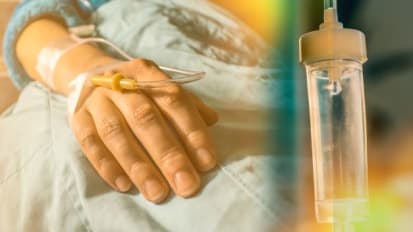 Video
Video
CAR T-Cells for Hematologic Malignancies and Beyond
In this data-drenched discussion, UCSF specialists review how CAR T-cells are being used in hematologic malignancies, including aggressive lymphoma and difficult-to-treat myeloma, as well as for solid tumors, and reveal what's on the horizon with regard to these products. News
News
Drug Targeting Tauopathies in Mice Reveals Sex Differences in Response
Microglia are cells that are central to both brain health as well as disease progression in many neurological conditions.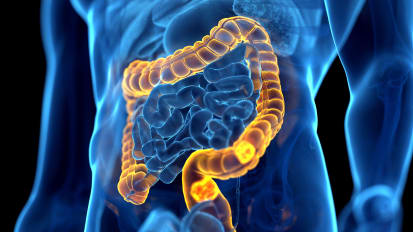 News
News
UCSF Surgical Oncologists Present Clinical Findings at International Conference
The latest advances in surgical cancer care and research were showcased at the Society of Surgical Oncology’s (SSO) Annual Meeting, the International Conference on Surgical Cancer Care. The meeting was held in Boston, from March 22 – 25, 2023. Video
Video
Meet the Doctor: Dr. Christina Allen
Get to know Dr. Christina Allen, an Orthopedics Sports Medicine surgeon at UCSF. News
News
Olfactory Loss from COVID-19 Infection: Cause and Treatments Studied at UCSF
Complete (anosmia) and incomplete (hyposmia) smell sensitivity impairment are widely reported indicators among the many symptoms of COVID-19 infection. Quality of life can be substantially impacted by the loss of taste and smell, with possible effects including depression, loss of appetite, and safety risks from lack of awareness of gas leaks, smoke or spoiled food. The path to recovery of taste and smell varies widely among affected individuals. News
News
International Conference Features UCSF Breast Cancer Experts
Breast cancer experts from UCSF Health will present new research and clinical findings at the annual San Antonio Breast Cancer Symposium, the world’s largest and most prestigious breast cancer conference. Video
Video
A Better Understanding of Breast Cancer Risk: How to Find the Best Options for Individual Patients
Doctors must weigh numerous factors as they seek to identify and manage patients at high breast cancer risk. Video
Video
COVID Update: Experts Answer Questions on Boosters, Everyday Risks and What the Future Holds
An expert panel mines the latest data to discuss the COVID-related issues on patients’ minds News
News
Forecasting May Help People with Epilepsy Predict Their Seizures
UCSF team discovers brain activity patterns that foreshadow seizures up to 24 hours before they occur. Video
Video
Our Cardiologists Address Consequences of the COVID Crisis
The pandemic has both led to delays in heart attack treatment and highlighted racial disparities in health care. Our specialists look at facts and possible solutions. Plus: an update on managing COVID patients at risk of thrombosis and other inflammatory conditions.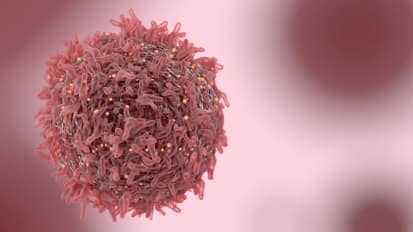 Video
Video
Screening for Breast Cancer in an Era of Breast Density Legislation
Get an in-depth look at evidence for mammography as a screening tool to reduce mortality via early detection of breast cancer. Also: the value of breast density legislation, density assessments and supplemental screening options like MRI and ultrasound.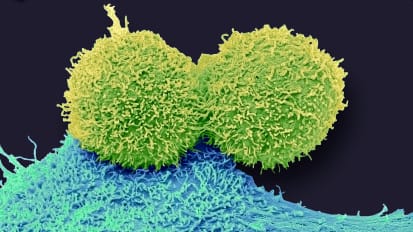 News
News
UCSF and I-SPY 2 Breast Cancer Researchers Develop Newly Redefined Breast Cancer Response Subtypes
Research scientists and statisticians from UC San Francisco have developed improved biomarker classifications as part of their research results in the I-SPY 2 trial for high-risk breast cancer patients.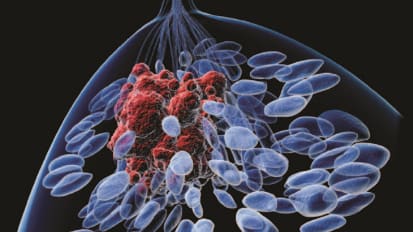 Document
Document
Breast Oncology
Expert care and transformative research working together to improve both survival and quality of life News
News
UCSF’s Dr. Mitchel Berger on the Cancer Moonshot Relaunch
On Feb. 2, 2022, Mitchel Berger, MD, neurosurgeon and director of the UCSF Brain Tumor Center, attended the relaunch of the White House’s Cancer Moonshot initiative at the invitation of President Joe Biden and Dr. Jill Biden. Video
Video
Gestational Diabetes Mellitus (GDM): A Fresh Look at Health Impacts, Screening Tests & Management Tools
Having experienced GDM herself while pregnant, perinatologist Jennie Duffy, MD, understands the challenges for both patients and doctors in the quest for better glycemic control. Video
Video
Cancer Immunotherapy: Promise and Pitfalls
Oncologist David Oh speaks at the October 2017 Bay Area Breast Cancer Forum about key developments in immunotherapy like immune checkpoint inhibitors and T-cell therapies, plus its use in experimental approaches to breast cancer treatment.

